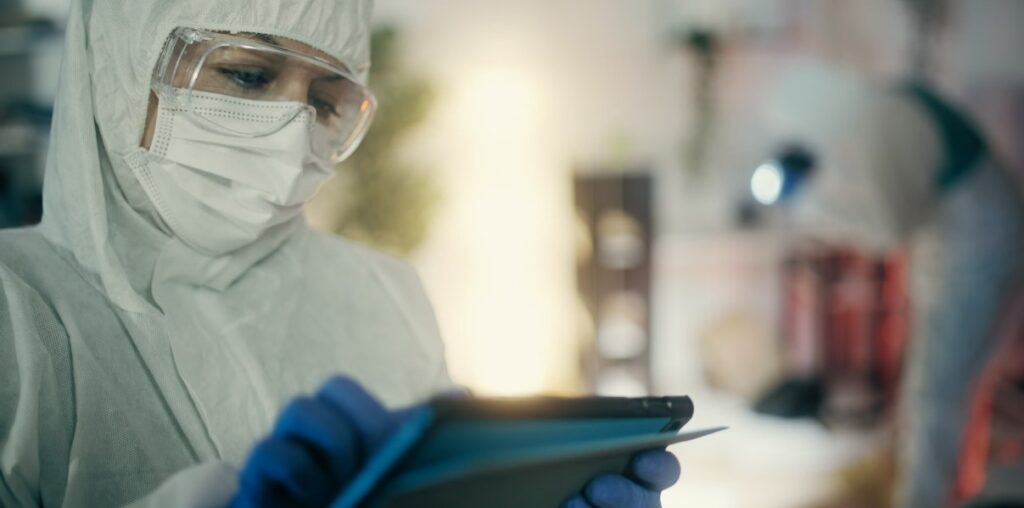Forensic nursing plays a pivotal role in bridging the gap between healthcare and the legal system. It involves the collection, preservation, and analysis of medical evidence to support criminal investigations. One of the most critical aspects of forensic nursing is maintaining the chain of custody, a process that ensures evidence integrity from the moment it is collected until it is presented in court.
Without a properly maintained chain of custody, evidence can be deemed inadmissible, potentially jeopardizing legal proceedings. Understanding why chain of custody is crucial in forensic nursing can help professionals handle evidence more effectively and uphold justice.
Understanding the Chain of Custody
The chain of custody refers to the systematic documentation of evidence handling, ensuring that it remains untampered throughout its journey.
Every step, from collection to storage and transfer, must be meticulously recorded. This documentation typically includes details such as the date and time of collection, the name of the person handling the evidence, storage conditions, and any transfers made. Any break in this chain can raise doubts about the authenticity and reliability of the evidence, weakening the case. A well-maintained chain of custody helps forensic nurses ensure that their collected evidence is legally valid and scientifically credible.
The Role of Forensic Nurses in Evidence Collection
Forensic nurses are often the first professionals to handle physical evidence in cases involving sexual assault, domestic violence, child abuse, or other crimes. Their role extends beyond medical care to include the proper collection and documentation of forensic evidence.
They must follow standardized protocols to avoid contamination and ensure the integrity of biological samples such as DNA, blood, and bodily fluids. By undergoing a forensic nursing course, professionals gain the skills necessary to collect, preserve, and document evidence while adhering to legal and ethical standards. Proper training equips forensic nurses with the knowledge required to handle sensitive cases effectively and contribute to the justice system.
Preventing Contamination and Tampering
Maintaining the chain of custody helps prevent evidence contamination or tampering. Biological evidence, such as DNA and blood samples, is highly susceptible to degradation if not handled correctly. Even minor errors in packaging, labeling, or storage conditions can compromise the sample’s integrity.
Forensic nurses must use sterile tools, wear protective gear, and store samples in designated environments to prevent cross-contamination. Additionally, digital records and barcode tracking systems help ensure that evidence is accounted for at all times. A compromised sample can lead to wrongful convictions or dismissed charges, making it essential for forensic nurses to follow strict protocols when managing evidence.
Legal Implications of a Broken Chain of Custody
A broken chain of custody can have serious legal repercussions. If evidence is mishandled, it may be challenged in court, leading to its exclusion from the trial. Defense attorneys often scrutinize the chain of custody to identify inconsistencies that may cast doubt on the evidence’s authenticity.
Without clear documentation, the prosecution may struggle to establish a direct link between the suspect and the crime. This can ultimately impact the outcome of the case, allowing perpetrators to walk free or causing wrongful accusations. Forensic nurses play a key role in ensuring that all collected evidence meets the legal requirements for court proceedings.
Documentation and Record-Keeping in Forensic Nursing
Accurate documentation is the backbone of maintaining an unbroken chain of custody. Every forensic nurse must ensure that records are complete, legible, and secure. This includes noting the time and method of collection, the name of the individual handling the evidence, and any changes in possession.
Digital tracking systems have made it easier to maintain organized records, reducing the chances of human error. Proper documentation not only ensures legal admissibility but also supports transparency and accountability in forensic investigations. A well-documented chain of custody can strengthen the credibility of forensic nurses as expert witnesses in court.
The Role of Technology in Enhancing Chain of Custody
Advancements in technology have significantly improved the management of forensic evidence. Barcode scanning, RFID tracking, and blockchain-based digital ledgers help ensure the integrity of the chain of custody. These technologies provide real-time tracking, minimizing the risk of misplacement or unauthorized access to evidence.
Forensic nurses must stay updated with emerging technologies to enhance the security and efficiency of evidence collection. By integrating digital solutions, forensic nursing professionals can minimize human error and ensure that every piece of evidence remains intact from collection to trial.
Ethical Considerations in Evidence Handling
Ethical responsibility is a cornerstone of forensic nursing. Forensic nurses often deal with vulnerable victims, making it essential to handle evidence with care and sensitivity. Ethical considerations include obtaining informed consent, maintaining confidentiality, and avoiding conflicts of interest.
Any breach of ethical standards can compromise the victim’s trust and the integrity of the case. By enrolling in a forensic nursing course, professionals can learn the ethical principles that guide forensic evidence collection and ensure justice for victims. Upholding ethical standards strengthens the credibility of forensic nurses and ensures fairness in legal proceedings.
Related: Is Hair Transplant for Temples the Right Solution for You?
Conclusion
The chain of custody is a fundamental aspect of forensic nursing that ensures evidence remains untampered and legally admissible. From proper collection and storage to thorough documentation, forensic nurses play a crucial role in maintaining evidence integrity.
Any lapse in the chain of custody can compromise legal cases, making it vital for forensic professionals to adhere to strict protocols. Understanding the importance of the chain of custody and gaining the necessary skills through a forensic nursing course can help professionals make a meaningful impact in forensic investigations and the justice system.




